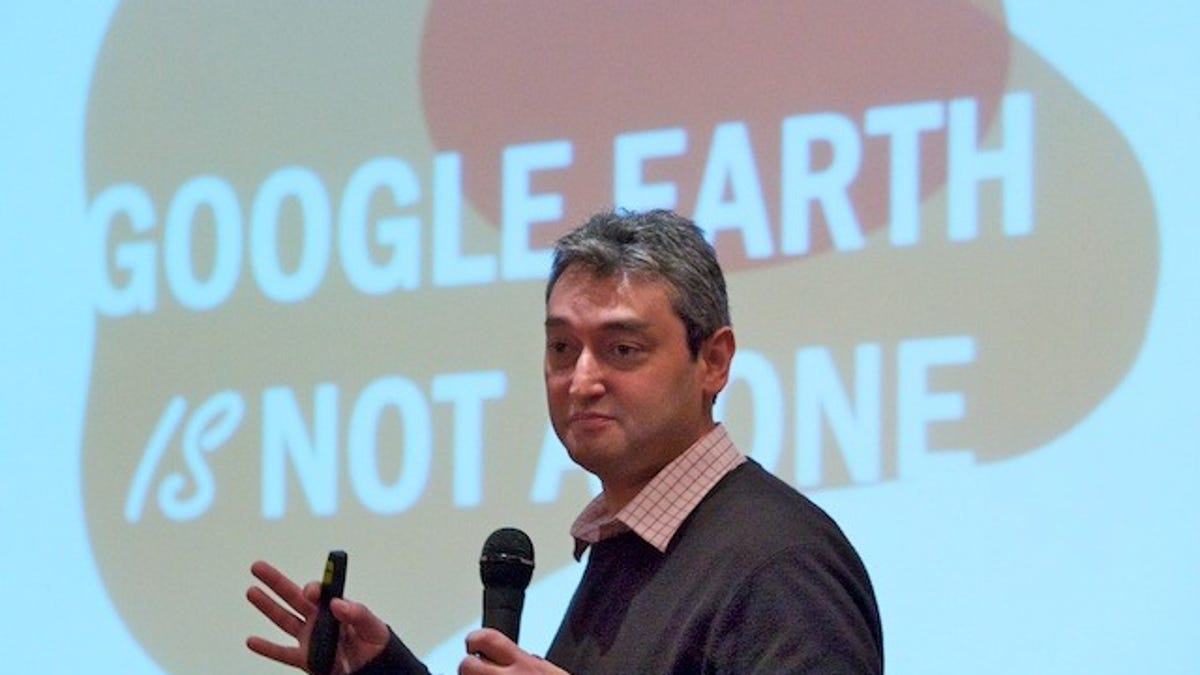Start-up hopes to bridge real, virtual worlds
Google's Street View shows the real world. Second Life is completely imaginary. Micazook wants to draw on both with its coming virtual world.

LONDON--Micazook, a start-up trying to bring some real-world flavor to virtual worlds on the Net, plans to publicly launch an online realm it calls Project X for now.
"A beta will be out in the next few weeks," Michael Fotoohi, managing director and one of the prime programmers behind the project, said at the Image Sensors Europe conference here. By then, he said, Project X should have a real name instead of its present placeholder.
Project X attempts to overlay the free-wheeling style of Second Life over a model of the real world. The company has obtained high-resolution imagery for many parts of the world, combined it with data for where roads are located, and used it as a foundation for the virtual world.
Think of it as Google Maps Street View populated by avatars.
The imagery is useful in an aerial view, but if you want to see a 3D realm when on the ground, members of the virtual world will have to build the buildings. Fotoohi said the process is relatively simple--about 10 to 15 minute per building, including the addition of graphics to spruce up the wireframe's realism.
"We like people to come and build Earth," Fotoohi said Thursday. The general idea is based on Wikipedia, which has shown the possibilities of letting people produce their own content.
Virtual worlds have gained some measure of popularity, but they can be a tough sell. Second Life is alive and kicking but not generating the excitement it once did. Google's Lively was canceled altogether during a moment of belt-tightening. And Fotoohi said has had trouble raising funds from venture capitalists who said they weren't interested until he demonstrated a large membership.
Micazook has various plans for bringing in money. A big one is a 30 percent tax on any transaction--sales of property or virtual goods, for example. Another is ownership of a building, which costs $4.99 per month.
Although Fotoohi is excited by the possibility of building a virtual version of the real world, there are big limits to how closely the two correspond. Anyone can own a property in Project X, for example, regardless of who owns it in the real world.
To protect against virtual vandalism, moderators will be empowered to keep up standards, he added. Those who do well with buildings can be named as new moderators by existing moderators, crowdsourcing the chore.
One thing Fotoohi is particularly proud of is high-resolution avatars--typically constructed of 7,000 to 10,000 polygons for high detail.
Unlike Second Life, Project X runs in a browser. It relies on a plug-in, however, that lets the software take advantage of 3D graphics hardware acceleration.
The beta will launch with three cities: New York, Los Angeles, and Washington, D.C.
And what will people do there? Naturally, at the current private stage of development, Fotoohi's demonstration of Project X couldn't show one possible attraction, chatting with others there. Another possibility: games, including poker.

